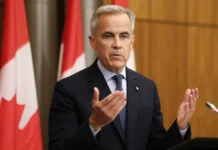Geneva, 12 September 2023 (TDI): Volker Türk, the United Nations (UN) High Commissioner for Human Rights has issued a stark warning about the dire situation in Afghanistan.
Afghan women and girls are facing severe oppression by the Taliban amidst a worsening humanitarian crisis. Türk expressed deep concern about the collapse of human rights in the country.
He cited numerous issues, including extrajudicial killings, torture, arbitrary arrests, and violations against former Government officials, all of which were documented in a recent report from the UN’s human rights office (OHCHR).
Highlighting Afghanistan’s unique status as the only country in the world where women & girls are denied access to secondary & higher education, he emphasized the troubling restrictions imposed on Afghan women, essentially confining them to their homes.
He underscored that the future of Afghanistan hinges on the active participation of both men and women and stressed that denying women’s rights impedes the country’s progress.
Türk also pointed out that the suspension of the Afghan constitution, laws protecting women from violence, media freedom & the dissolution of the Independent Human Rights Commission have systematically eroded institutions that once safeguarded human rights.

In a call to action, Türk urged the de facto authorities to change their course, adhere to international human rights obligations, and reintegrate Afghanistan into the international community.
Furthermore, Türk highlighted that the UN Assistance Mission in Afghanistan (UNAMA) will continue its vigilant monitoring and reporting on the situation, while also urging compliance with international law by the de facto authorities.
He commended the tireless work of his human rights colleagues on the ground, particularly Afghan female staff & issued a plea to the international community not to abandon Afghanistan, where rights are eroding & the majority of the population requires humanitarian aid.
Meanwhile, the Special Rapporteur on Afghanistan, Richard Bennett, delivered a somber update to the Council, echoing concerns from many Afghans living abroad who feel betrayed by the international community.
They demand concrete action and recognition of the alarming concept of gender apartheid, a term that Bennett had previously suggested might apply to Afghanistan’s de facto authorities due to their systematic discrimination against women and girls.
Bennett further emphasized the alarming collapse of civic space, the absence of the rule of law, and the lasting impacts on children’s development and mental health.
He also drew attention to the repression and lack of representation of minority groups in Afghanistan.
Expressing deep concern, Bennett warned about the potential destabilizing effect of widespread discrimination and exclusion experienced by a significant portion of the Afghan population.
Also Read: UNHRC reviews Pakistan’s human rights record in Geneva
It’s essential to note that Special Rapporteurs, like Bennett, operate independently, serving in their individual capacity and not affiliated with any government or organization.
They do not receive a salary for their work, which underscores the importance of their impartiality in addressing critical human rights issues.
Iffat Masood is Contributor and Content writer on THE DIPLOMATIC INSIGHT, and also Ambassador from IAMCR. She is perusing her PhD. from UAB Barcelona, Spain in Audio-Video Communications and Advertising.








